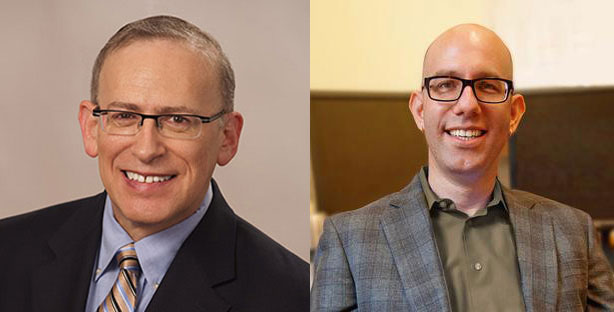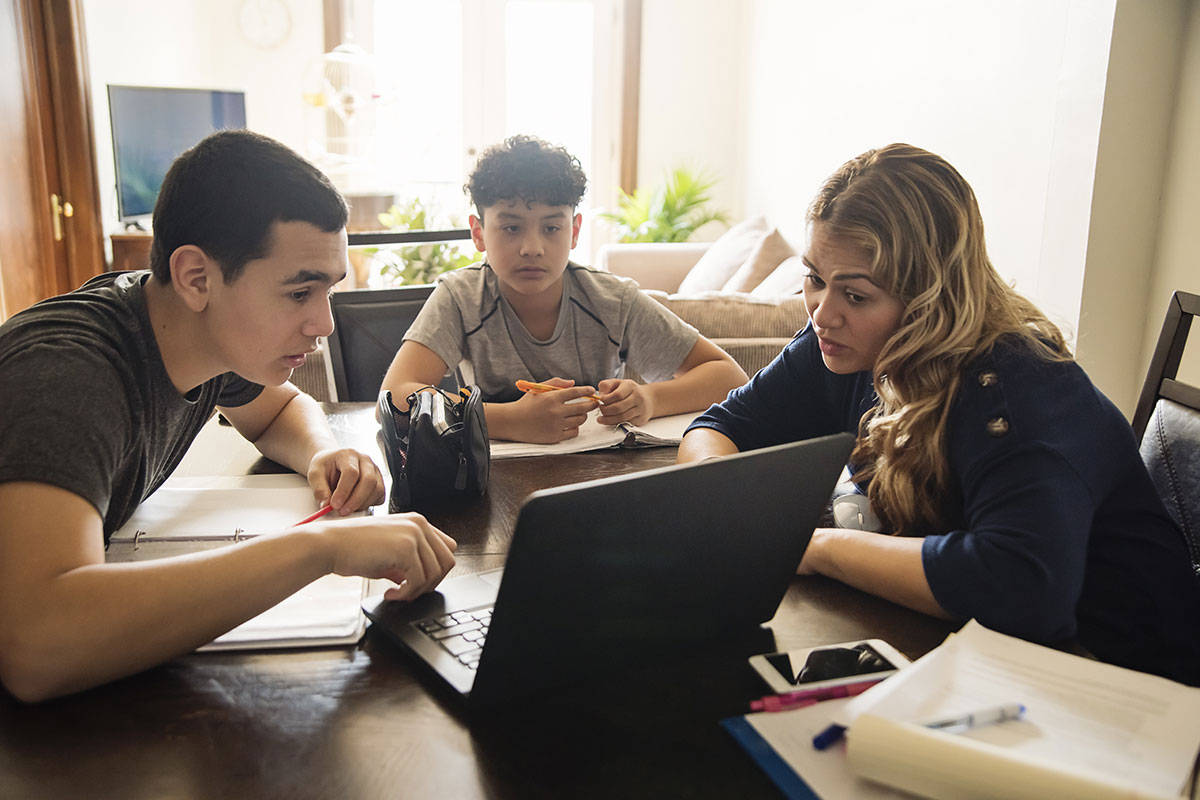With school buildings in 45 states and the District of Columbia having been closed since March in response to the COVID-19 pandemic, a new survey shows that a substantial majority of Americans are concerned about the potential negative impacts of school-sponsored, online instruction that was rapidly put in the place of in-school teaching and learning.
Previous surveys indicated that as many as 83 percent of parents reported that their children are engaged in online distance learning. According to a new national survey by The Public Matters project at Teachers College more than three-quarters, or 77 percent, of respondents said they are very or somewhat concerned about the negative impact of the coronavirus outbreak on the academic learning of school children. About seven in ten, or 72 percent, said they are very or somewhat concerned about the effect of school closings on students’ emotional and social development, and more than two-thirds, or 67 percent of respondents said they are very or somewhat concerned about the negative effect of the outbreak on both the academic learning and the social and emotional development of young learners.

PROBING THE DIGITAL DIVIDE Pallas (left) and Pizmony-Levy found that Americans believe the negative effects of remote schooling at home could be amplified by disparities in access to technology and by differences in parents’ ability to monitor their children’s learning at home. (Photos: TC Archives)
“In most communities, the transition to online distance learning has been rocky,” write study authors Aaron Pallas, Arthur I. Gates Professor of Sociology and Education at Teachers College; and Oren Pizmony-Levy, Associate Professor of International and Comparative Education. “Few districts were well-prepared for the possibility of long-term school closures, and the challenges of having teachers engage with students remotely. The academic and social features of the classroom may not transfer easily to schooling at home. It is possible that children's academic learning may suffer, and that they may struggle with managing and expressing their emotions and their relationships with others.”
Released this week, the survey measures American views of the possible impact of the coronavirus outbreak on schoolchildren and the role of teachers during the coronavirus outbreak.
“Concerns about the slowdown in student learning during the shutdown, and growing inequalities based on students’ social class backgrounds, are real,” said Pallas. “But our survey shows that many Americans felt that closing schools would also have an adverse effect on children’s overall well-being, and that in the midst of this pandemic, teachers should worry less about traditional academic content than about supporting children and youth experiencing this very sudden disruption to their lives.”
The online survey of a national sample of 1,459 adults, conducted from April 26 through May 8, found that Americans believe the negative effects of remote schooling at home could be amplified by the so-called “digital divide” and by differences in parents’ ability to monitor their children’s learning at home. Parents with fewer economic resources are less likely to have access to the technology their children need in order to access online teaching, and they are less able to stay at home and monitor their children’s progress.
The outbreak itself, and the shelter-in-place mandates that resulted from it, have made it more difficult for some children to learn at home. In many households, adult breadwinners have lost work and income, and the resulting stress and anxiety could negatively impact children's well-being and socio-emotional development, the authors write.
The authors focused on the 35 percent of respondents who report being very concerned that the virus will negatively affect children’s academic progress or emotional and social development. Within that group, responses varied across different background characteristics. They found that
- Blacks and Asian Americans are more concerned about the impact of the coronavirus outbreak than other racial/ethnic groups.
- The elderly are less concerned than other age groups about the virus’s impact on children.
- Respondents with a four-year college degree are more concerned than those without a college degree.
- Those in households with $100,000 or more in annual income are more concerned than those with less income.
- Self-reported liberals are more concerned than moderates or conservatives.
- Urban dwellers are more concerned than suburban or rural respondents.
The survey found that, in general, respondents with personal experience or knowledge about children or the coronavirus are more concerned than those lacking personal experiences. Parents of school-age children, those who have closely followed news reports about the outbreak, and people who have friends or relatives who have had the disease, are more concerned about its effects on children’s academic progress or social-emotional wellbeing than other respondents.
Concerns about the slowdown in student learning during the shutdown, and growing inequalities based on students’ social class backgrounds, are real. But our survey shows that many Americans felt that closing schools would also have an adverse effect on children’s overall well-being, and that in the midst of this pandemic, teachers should worry less about traditional academic content than about supporting children and youth experiencing this very sudden disruption to their lives.
— Aaron Pallas
Respondents were asked what areas they think teachers should be emphasizing while schools are closed. Half, or 50 percent, support teachers prioritizing students’ feelings and emotional well-being over academic development while schools are closed, while less than a third, 32 percent, believe teachers should prioritize academic performance. About 19 percent said teachers should devote equal attention to each.
Respondents in every demographic group support a teacher emphasis on feelings and emotional wellbeing, particularly female, Black and Latinx respondents, younger adults, self-described liberals, and people with family members or friends who have been stricken with the disease.
“Respondents who have had more personal contact with the coronavirus are more likely to support an emphasis on students' feelings and emotional well-being,” Pallas and Pizmony-Levy write.
“Those who can reasonably be thought of as ‘in the know’ about the potential impact of the coronavirus on elementary and secondary school students are more concerned about negative effects. Parents of school-aged children can see how their own children are responding to the disruption of familiar day-to-day routines. Those with friends or family who have fallen ill or died from the coronavirus have experienced the emotional toll first-hand.”
The survey results do not predict how public opinion may shift after students and teachers reconvene in brick-and-mortar school buildings. But they may suggest that Americans place a high value on schools, not just to deliver instruction, but as social and emotional connectors among students and teachers, especially during times of stress.
“Our survey results show just how much we count on schools to help young people grow and flourish academically and socially, and just how much is at stake when they are unable to function as we expect them to. This is consistent with our earlier research on support for community schools and an approach to teaching that looks beyond students' current academic performance to all aspects of their wellbeing,” write Pallas and Pizmony-Levy.
The Public Matters: How Americans View Education, Psychology and Health at Teachers College measures public opinion on contemporary issues in education, health and psychology. It contributes to policy debates by providing a source of reliable and valid public opinion and data.
— Patricia Lamiell
